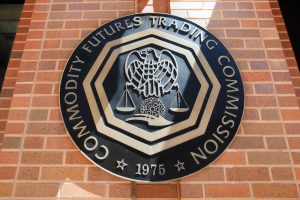Exchanges Round-Up: Price Spread and Institutions, Brazil Surveys Exchanges

In recent news pertaining to exchanges, Sfox has attributed a reducing spread in the price of BTC across exchanges to the increased presence of institutional investors in the cryptocurrency markets, Brazil’s government has issued a questionnaire to three local crypto exchanges seeking to obtain data pertaining to their operations, and data from the United States Commodity Futures Trading Commission (CFTC) has revealed a steady decline in bearish pressure on the BTC futures markets in recent months.
Also Read: Transaction Fee Mining Exchanges: Highly Popular, Highly Controversial
SFOX Finds Increased Institutional Presence is Driving Down Crypto Price Spread Across Exchanges
 Research conducted by Sfox has asserted that a larger presence from institutional investors has reduced the spread in the price of BTC across various exchanges.
Research conducted by Sfox has asserted that a larger presence from institutional investors has reduced the spread in the price of BTC across various exchanges.
Danny Kim, head of growth at Sfox, claims that the current spread in BTC prices seldom exceeds one-tenth of one percent, asserting that “Before institutional firms were actively trading crypto or heavily involved (before 2018) bitcoin price differences between exchanges varied as high as 4.5%.”
Among the institutional players are a number of high-frequency trading firms (HFTs), according to Mr. Kim, who added: “Some HFT firms have been trading since crypto 2014, but have limited themselves because the infrastructure wasn’t there. Most if not all HFT firms require a FIX connection at an exchange in order to trade efficiently. Crypto exchanges haven’t offered FIX connectivity until recently.”
Mr. Kim predicts that in future the growing presence of institutional investors will have a stabilizing effect upon BTC prices, stating: “As this trend continues, the stabilizing effects of institutional investment will extend beyond price spreads, and on to price fluctuations.”
Brazilian Government Questions Three Crypto Exchanges
 The Brazilian Ministry of Finance has issued questionnaires to the three local cryptocurrency exchanges among the top ten largest by volume. The questionnaire comprises 14 questions ostensibly intended to “subsidize study to Combat Corruption and Money Laundering,” according to a rough translation.
The Brazilian Ministry of Finance has issued questionnaires to the three local cryptocurrency exchanges among the top ten largest by volume. The questionnaire comprises 14 questions ostensibly intended to “subsidize study to Combat Corruption and Money Laundering,” according to a rough translation.
According to local media, one of the exchanges has completed and returned the questionnaire, another exchange claimed to not have received such, and the third exchange claimed that it would not respond to the letter as the questionnaire was not technically mandatory.
The majority of the questions pertain to the exchanges’ compliance, KYC, and monitoring procedures, in addition to information regarding the accounts and employees of the exchanges.
CFTC Data Shows Record Lows for Shorting Pressure on Futures Markets
 Data published by the United States Commodity Futures Trading Commission has revealed that the weekly number of short positions opened on the bitcoin futures markets continued to experience a significant decline during August.
Data published by the United States Commodity Futures Trading Commission has revealed that the weekly number of short positions opened on the bitcoin futures markets continued to experience a significant decline during August.
For the week ending on the 21st of August, the number of non-commercial futures contracts of bitcoin totaled a net position of -1,266 contracts.
The number of bearish positions on the futures markets has consistently declined over the course of the ten weeks since June’s high of -1,945.
Do you think that a greater presence from institutional investors can be attributed to the reduction in the price spreads across various exchanges? Share your thoughts in the comments section below!
Images courtesy of Shutterstock
At Bitcoin.com there’s a bunch of free helpful services. For instance, have you seen our Tools page? You can even lookup the exchange rate for a transaction in the past. Or calculate the value of your current holdings. Or create a paper wallet. And much more.
The post Exchanges Round-Up: Price Spread and Institutions, Brazil Surveys Exchanges appeared first on Bitcoin News.
by Samuel Haig via Bitcoin News